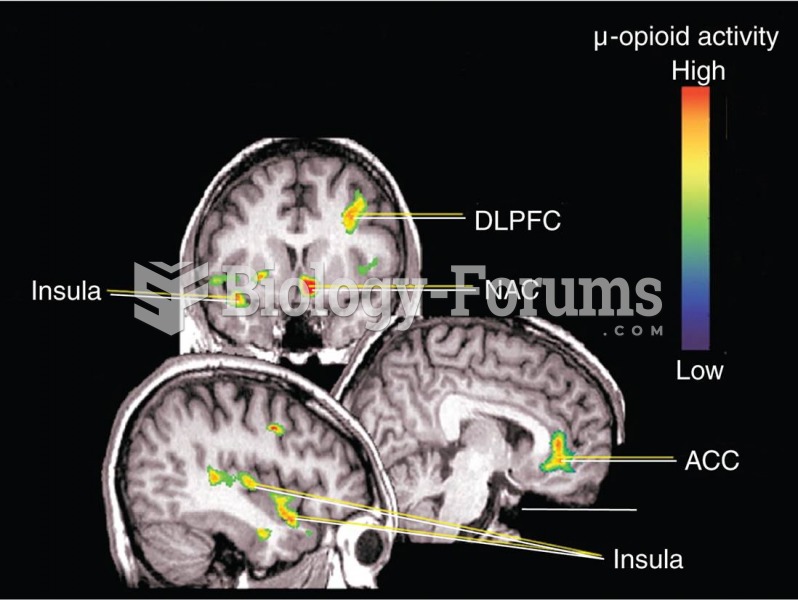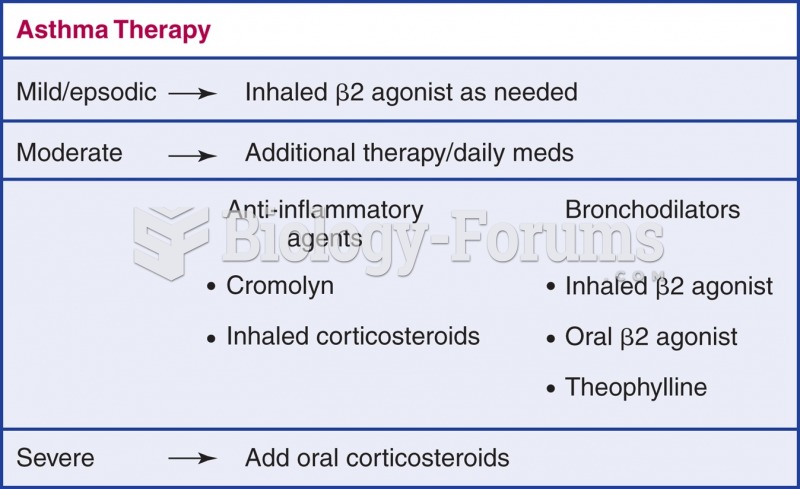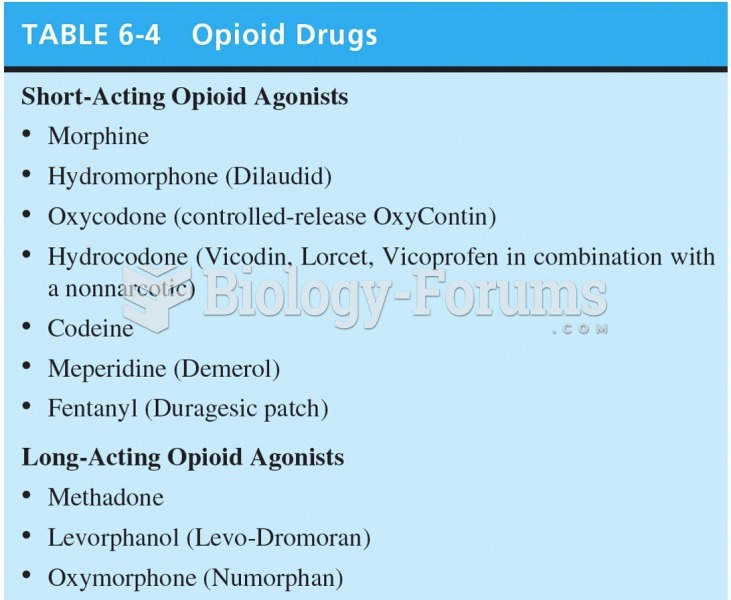|
|
|
Prostaglandins were first isolated from human semen in Sweden in the 1930s. They were so named because the researcher thought that they came from the prostate gland. In fact, prostaglandins exist and are synthesized in almost every cell of the body.
People about to have surgery must tell their health care providers about all supplements they take.
Walt Disney helped combat malaria by making an animated film in 1943 called The Winged Scourge. This short film starred the seven dwarfs and taught children that mosquitos transmit malaria, which is a very bad disease. It advocated the killing of mosquitos to stop the disease.
Egg cells are about the size of a grain of sand. They are formed inside of a female's ovaries before she is even born.
More than 4.4billion prescriptions were dispensed within the United States in 2016.







